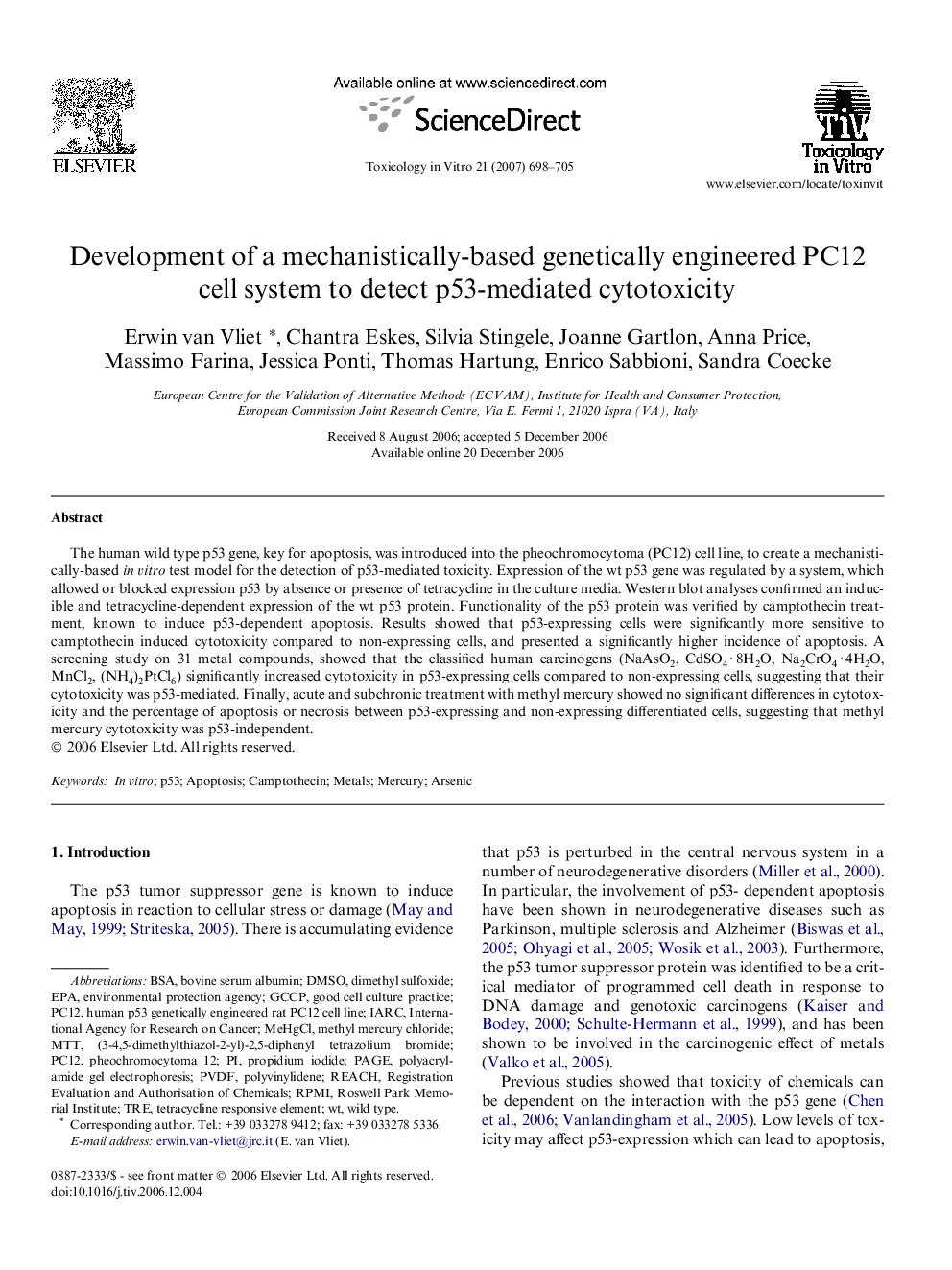| کد مقاله | کد نشریه | سال انتشار | مقاله انگلیسی | نسخه تمام متن |
|---|---|---|---|---|
| 2603311 | 1133816 | 2007 | 8 صفحه PDF | دانلود رایگان |

The human wild type p53 gene, key for apoptosis, was introduced into the pheochromocytoma (PC12) cell line, to create a mechanistically-based in vitro test model for the detection of p53-mediated toxicity. Expression of the wt p53 gene was regulated by a system, which allowed or blocked expression p53 by absence or presence of tetracycline in the culture media. Western blot analyses confirmed an inducible and tetracycline-dependent expression of the wt p53 protein. Functionality of the p53 protein was verified by camptothecin treatment, known to induce p53-dependent apoptosis. Results showed that p53-expressing cells were significantly more sensitive to camptothecin induced cytotoxicity compared to non-expressing cells, and presented a significantly higher incidence of apoptosis. A screening study on 31 metal compounds, showed that the classified human carcinogens (NaAsO2, CdSO4 · 8H2O, Na2CrO4 · 4H2O, MnCl2, (NH4)2PtCl6) significantly increased cytotoxicity in p53-expressing cells compared to non-expressing cells, suggesting that their cytotoxicity was p53-mediated. Finally, acute and subchronic treatment with methyl mercury showed no significant differences in cytotoxicity and the percentage of apoptosis or necrosis between p53-expressing and non-expressing differentiated cells, suggesting that methyl mercury cytotoxicity was p53-independent.
Journal: Toxicology in Vitro - Volume 21, Issue 4, June 2007, Pages 698–705